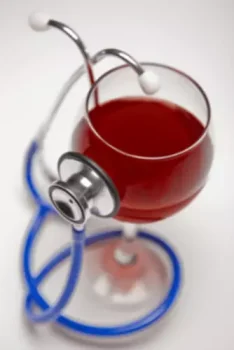
High-functioning alcoholism, while often less visible than other forms of addiction, carries significant consequences for an individual’s health, relationships, and overall quality of life. Despite maintaining an outward appearance of normalcy, high-functioning alcoholics experience a range of detrimental effects that can erode their well-being over time. Studies have shown that alcohol consumption correlates with depressive disorders, which in turn can impair health-related quality of life (HRQoL), even in individuals without clinically relevant depressive symptoms.
- Sometimes, people with alcohol use disorder don’t recognize their drinking is an issue, especially if they meet their work and home life responsibilities despite their alcohol dependence.
- It should not be used in place of the advice of your physician or other qualified healthcare providers.
- You might picture someone who drinks all the time, rarely has a day without a hangover and often can’t recall what happened the night before.
- If cravings and withdrawal have become severe, it’s important to consult medical professionals.
- If you are concerned about your loved one’s drinking, it can be helpful to join a support group such as Al-Anon.
Career And Work Life

We strive to create content that is clear, concise, and easy to understand. Postpartum depression is common and can interfere with your ability to care for yourself and your child. The editorial team at therapist.com works with the world’s leading clinical experts to bring you accessible, insightful information about mental health topics and trends. “And I truly recovered. I still go to this day and it’s been eight years. It’s the biggest part of my life. It has shaped every part of my life and I feel recovered.”

What are the signs of AUD?
According to the 2019 National Survey on Drug Use and Health,about 14.5 million people have an AUD, and yet only 7% received treatment that year. There are empathetic, actionable ways to support someone with an alcohol use disorder (AUD) who may be stuck in denial. Get professional help from an online addiction and mental health counselor from BetterHelp.
Signs of a High Functioning Alcoholic
There’s currently no official diagnosis for high-functioning depression in the Diagnostic and Statistical Manual of Mental Disorders (DSM-5). “Alcoholism is still alive and well in this brain and I need to treat that. I can treat that with alcohol or I can treat it with recovery. Today, I choose recovery.” “The way that I truly discovered I was an alcoholic https://ecosoberhouse.com/ was by quitting drinking,” Julie said. Although she is usually sharing advice about how to cope with death on social media, the hospice nurse also posts content for her 1.5million TikTok followers where she discusses her journey to sobriety. Inpatient programs usually consist of therapy, medications, physical health programs and holistic options.
- Often, they perform well at their job and take excellent care of their hygiene.
- If you suggest they see a mental health professional or get professional treatment advice, they’ll get angry or avoid the conversation entirely.
- It also might mean admitting that they don’t have it all together, and their exterior (and interior) world is crumbling.
Seeking Support From Others

“I learned how to live sober and use a 12 step programme to give me relief – relief what alcohol used to give me. From a public health perspective, excessive alcohol use is one of the leading preventable causes high functioning alcoholic of death in the United States. These impacts extend beyond the individual, affecting communities and society at large. If your loved one is in denial or doesn’t want to seek treatment, they’re not alone.
If the consequences of high-functioning alcoholism have become overwhelming, and your loved one refuses to seek help for alcohol abuse, it could be time to plan an intervention. An intervention is a planned meeting in which the concerned parties confront the alcoholic about their behavior. People can have a varied reaction and tolerance to alcohol and that doesn’t necessarily mean they are alcoholics. However, as functioning alcoholics drink more regularly, they develop a higher tolerance. They still want to feel the buzz or numb out from their problems for a while, so they will begin drinking more as their tolerance to alcohol increases.
Signs & Symptoms Of A High-Functioning Alcoholic
Careers – Join Our Team

Check your symptoms

